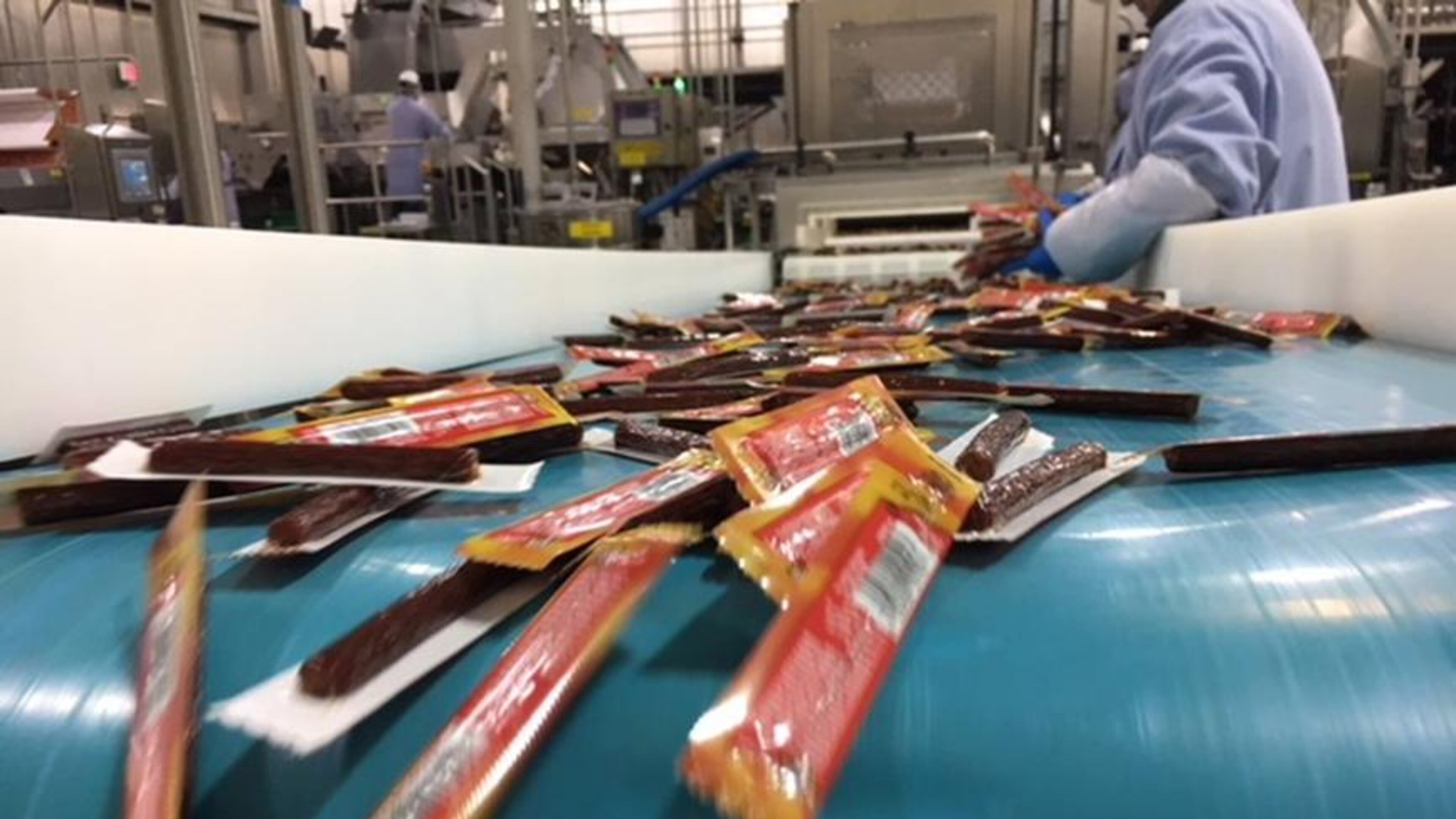Ohio factory produces a billion Slim Jims a year

The home of Slim Jim snacks in Troy has been reaping awards for efficiency.
And efficiency is important when you talk about a plant that makes about a billion Slim Jim meat sticks every year.
The company behind the Slim Jim snack brand, agricultural producer Conagra, recently recognized the Dye Mill Road plant for plant modifications that eliminated 504 tons of waste — and related unplanned production interruptions — in one year alone.
"The Troy plant has delivered," Plant Manager Jeff Erwin said. "That's a good thing."
Nebraska-based Conagra Foods’ facility in Troy makes the company’s Slim Jim brand of snack food and Max frozen pizzas. The Slim Jim brand represents about six percent of the company’s total profits and generates $200 million in sales annually.
It’s important to remember how Conagra made Troy the home of the Slim Jim.
In June 2009, an explosion destroyed almost half of Conagra’s plant in Garner, North Carolina. Production of the snack food was transferred to the Troy facility and other plants operated by third-party manufacturers.
Before the North Carolina explosion, the Troy plant basically had part of Conagra’s bakery line, and the facility also made pepperoni for pizza, with a smokehouse on-site.
The Troy plant was positioned to be expanded, Erwin said. “Within 45 days, we were up and running to do Slim Jims.”
The original plant’s packaging area suffered the most damage in the incident, and Conagra spent about $300,000 repairing and renovating the plant. The North Carolina site reopened in August 2009, but operated at a limited capacity.
As the cost of rebuilding the damaged sections of the Garner facility was deemed too high, Conagra announced plans to permanently expand the Troy facility. The Garner plant closed in May 2011.
Today, the Troy plant has 750 employees. In the past four years, Conagra invested more than $30 million into the plant.
The Troy plant also makes Duke’s meat snacks, through an acquisition Con-Agra made in spring 2017.
“The plant has a lot of corporate credibility,” Erwin said.
Meat snack sticks are a $1.37 billion business, according to Nielsen. The broader meat snack category, which includes sticks and jerky, is a $2.9 billion business.
The Troy plant makes close to a billion Slim Jim sticks a year, said Dwight Freeman, the Troy plant’s production manager
“It is (a lot),” Freeman said. “If you were to see the process, it’s kind of amazing.”
The plant operates seven days a week, Freeman said. Six production lines run on a continuous basis, about 18.5 to 19 hours a day. The remaining five or so hours are dedicated to a nightly mandatory sanitation process.
In recent Conagra competitions, the Troy facility was a finalist in three of four competition categories.
Plant personnel won by finding ways to save water and extend machinery life.
The plant uses water to cool air compressors, with water coming in and water going out. The plant was not recycling the water, though.
Richie Brickler, facility manager, said the system was re-engineered and refabricated so that the plant ended up saving some 12 million gallons of water and more than $100,000 a year.
The home of the @SlimJim. pic.twitter.com/N4pj6VkjDI
— Thomas Gnau (@ThomasGnau) May 29, 2018
“There were a lot of benefits from that,” Brickler said. “One, from an environmental standpoint, we’re not wasting a whole bunch of water. And two, from the perspective of the machinery side of it … we weren’t putting hard city water into it (the machine). We’re putting chemically treated water.”
So the machine’s life span is strengthened, Brickler said.
Freeman said the plant also identified machine parts that had to be replaced every six to eight weeks. Plant leaders did an overview of what could be improved and found a way to save not only money, but 2,800 minutes of down-time.
After some work, today the plant is able to extend the process so that affected parts won’t have to be changed out for over 14 months.
More Stories
The Latest

